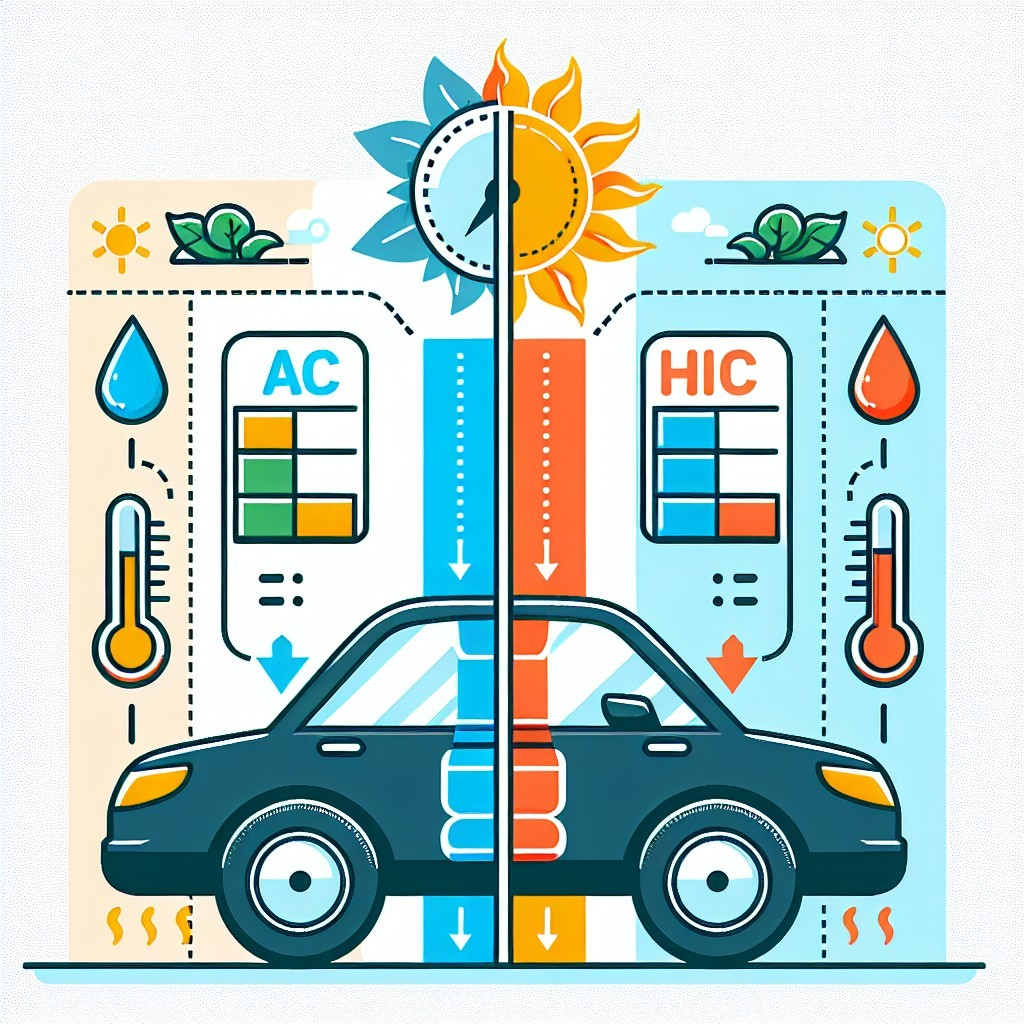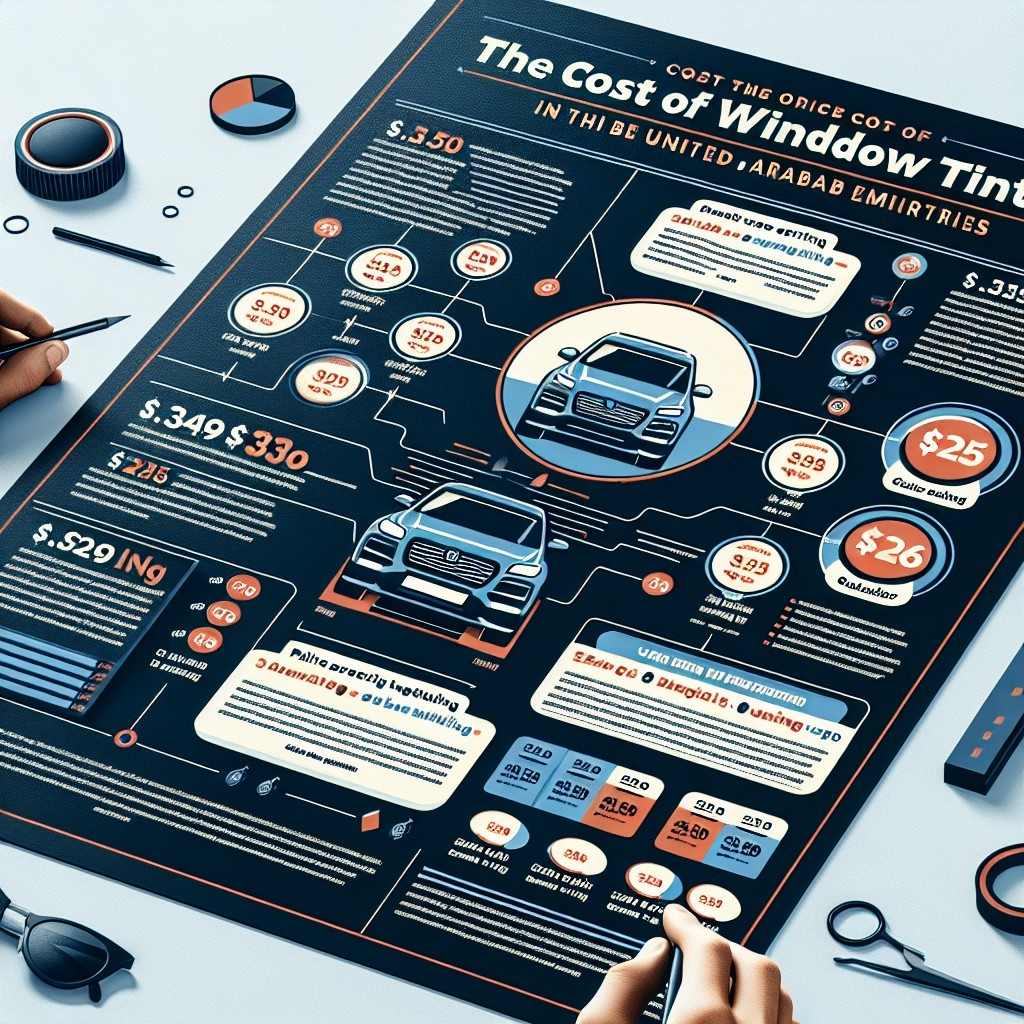As the summer sun blazes down‚ car owners are continuously seeking ways to keep their vehicles cool and comfortable. One popular solution is car tinting. But beyond aesthetics and privacy‚ have you ever wondered how car tinting affects fuel efficiency and the use of your air conditioning system? Let’s dive into the science behind window tinting and its impact on your driving experience.
Understanding Car Tinting
Car tinting involves applying a thin film to the windows of a vehicle‚ designed to reduce sunlight and glare. Tints come in various shades and materials‚ each providing different levels of heat rejection and UV protection. Aside from enhancing the look of your car‚ the main purpose of window tinting is to improve comfort by reducing the amount of heat that enters the cabin.
The Science of Heat and Tinting
When sunlight hits your car‚ it generates heat that can significantly raise the temperature inside. A well-tinted window can block a considerable amount of this heat. According to studies‚ high-quality window tints can block up to 99% of harmful UV rays and reduce solar heat gain by up to 60%. This reduction in heat can lead to a more comfortable driving experience and impact your vehicle’s fuel efficiency.
Fuel Efficiency: The Connection
How does car tinting translate to better fuel efficiency? The answer lies in the use of the air conditioning (AC) system. When the interior of your car is excessively hot‚ the AC has to work overtime to bring the temperature down‚ consuming more fuel in the process. Studies indicate that operating the AC can reduce fuel efficiency by approximately 5-20%‚ depending on driving conditions and the efficiency of the car’s air conditioning system.
With effective window tinting‚ the amount of heat entering your vehicle is minimized‚ which means your AC doesn’t have to work as hard. This not only conserves fuel but also extends the lifespan of your AC system. By reducing the need for extensive cooling‚ you can expect a more efficient use of fuel throughout your journeys.
Air Conditioning Usage: A Matter of Balance
The relationship between car tinting and AC usage is nuanced. While tinting can reduce the interior temperature‚ excessively dark tints can also reduce visibility‚ leading to potential safety hazards. Therefore‚ it’s essential to find a balance. A moderate tint allows for sufficient heat rejection without compromising visibility‚ ensuring that the AC remains a tool for comfort rather than a necessity for survival.
Additional Benefits of Car Tinting
- UV Protection: Tinted windows protect passengers from harmful UV rays‚ reducing the risk of skin cancer and preventing the fading of upholstery.
- Privacy and Security: Tints add a layer of privacy‚ making it harder for prying eyes to see inside your vehicle.
- Enhanced Comfort: By maintaining a cooler interior‚ you’ll enjoy a more pleasant driving experience‚ especially during those sweltering summer months.
So‚ the next time you’re out in the sun‚ think about how a simple film can transform your car into a cooler‚ more efficient ride!
The Process of Choosing the Right Tint
When considering car tinting‚ the first step is understanding the different types of tint films available. From dyed films to reflective and ceramic options‚ each type offers distinct benefits and drawbacks. Dyed films are great for privacy and aesthetics‚ while ceramic films provide superior heat rejection without compromising visibility. Reflective films can enhance privacy and reduce glare‚ but they may not be suitable for every vehicle due to local regulations on reflectivity.
Before making a decision‚ it’s essential to check the legal regulations regarding window tinting in your area. Each state or country has specific laws governing the darkness and reflectivity of window tints. Ensuring compliance not only avoids potential fines but also guarantees safety while driving.
Installation Matters
Once you’ve decided on the type of tint‚ professional installation is highly recommended. While DIY kits are available‚ the precision required for a flawless finish often demands the expertise of a trained technician. Professionals ensure that the tint is applied correctly‚ with no bubbles or imperfections‚ maximizing the benefits of the film.
Moreover‚ a professional installation can often come with warranties for both the product and the installation itself‚ providing peace of mind for years to come.
Long-Term Benefits of Car Tinting
Investing in car tinting is not just about immediate comfort; it offers significant long-term benefits as well. By reducing the amount of heat entering your vehicle‚ tinted windows can help preserve the interior materials of your car. Sun exposure can cause dashboards to crack and upholstery to fade‚ leading to costly repairs or replacements. With tinted windows‚ you’re essentially protecting your investment.
Additionally‚ tinted windows can enhance your vehicle’s resale value. Prospective buyers often appreciate the added privacy and comfort that comes with window tinting‚ making your car more appealing in a competitive market.

Final Thoughts
So‚ whether you’re looking to shield yourself from the sun’s rays or simply want to add a touch of style to your ride‚ car tinting can be a game-changer. Get ready to hit the road cooler than ever!


This article provides great insights into how car tinting can actually improve fuel efficiency. I never realized that it could help my AC work less!
I found the connection between window tinting and fuel efficiency fascinating. It makes so much sense now!
What a great read! I appreciate how it breaks down the technical aspects of car tinting in an easy-to-understand way.
Very informative! I always thought car tinting was just for looks, but this article opened my eyes to its practical benefits.
The science behind heat rejection and its impact on comfort is well explained. I’m definitely considering getting my windows tinted now!
I had no idea that window tinting could block so much UV rays and reduce heat gain. This is a must-read for all car owners!
This article has convinced me to invest in window tinting for my car. The potential savings on fuel are too good to pass up!